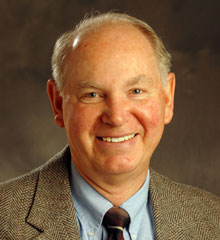Theological Themes in James
Caring community
Those who are hearers and doers exhibit a wholeness and integrity of faith and action that is shown in solidarity with the poor and needy and in the building up of community. Such community is established and shaped through patterns of the Christian life illustrated in, for example, the control of speech for the common good (3:1-12), the avoidance of conflicts and disputes through humble refusal to judge one another (4:1-12), and the sustaining power of intercessory prayer (5:12-20). James’ Christian ethic is not centered on individual holiness; nor does it find its framework in the structure of households during the Greco-Roman period, as the Pastoral EpistlesThe Pastoral Epistles are the New Testament letters of 1 and 2 Timothy and Titus. They are described as pastoral because they are addressed to individual persons rather than churches; they deal with matters of leadership and church governance. More do. Rather, Christian morality is concerned with how a diverse community of Christians live together and care for one another.
Faith and works
The key theme of the “law of liberty” as “love of the neighbor” is further developed in the dialogue about “faith and works” in 2:14-26. The unity of hearing and doing has its counterpart in the assertion that a faith that is not active in works of mercyMercy is a term used to describe leniency or compassion. God’s mercy is frequently referred to or invoked in both the Old and New Testaments. More on behalf of the community is dead.
God
James is intensely theological, in that “God” is the second word in the letter in the original Greek, and God is at the center of its language and perspective (almost 25 references in the 108 verses). The one living God, unchanging in purpose, answers generously the prayer for wisdomWisdom encompasses the qualities of experience, knowledge, and good judgment. The Old Testament book of Proverbs, which sometimes invokes a Woman as the personification of Wisdom, is a collection of aphorisms and moral teachings. Along with other biblical passages, it teaches, “The fear of the… More (1:5), is the giver of every perfect gift (1:17), and is the author of the implanted word of truth that holds the saving power to make people hearers and doers (1:21-25; 2:8). God causes the Spirit to dwell in us and gives graceGrace is the unmerited gift of God’s love and acceptance. In Martin Luther’s favorite expression from the Apostle Paul, we are saved by grace through faith, which means that God showers grace upon us even though we do not deserve it. More that the wisdom from above shows fruits in righteousness, mercy, and peace (3:17; 4:5-6).
The Teachings of Jesus
The Letter of James includes no information about the life of Jesus or his death and resurrection. In those places where it names Jesus, the letter bears witness to him as “the Lord Jesus Christ” (1:1; 2:1). It also speaks of the nearness of the Lord’s coming (5:7-8). Otherwise, the letter does not develop a statement about the person and work of Christ.
However, the Letter of James may be seen as explicitly Christian literature in the way that it uses Jesus’ teachings. For example, James’ exhortation to ask for wisdom from God “who gives to all generously and ungrudgingly” (1:5) echoes the words of Jesus, “Ask, and it shall be given to you” (Matthew 7:7; Luke 11:9). The exhortation from Jesus, “Do not judge, so that you may not be judged” (Matthew 7:1) sounds a theme like the one in James 4:11, which warns against judging. Advice not to swear but rather to let your “yes” be “yes,” and your “no” be “no” (James 5:12) is nearly identical to that in Matthew 5:34-37. In at least seven places, the commands that James issues find close parallels in the words of Jesus we know from the gospels.
Hearing and doing
In several places James seems to rely on traditions of Jesus’ teaching, although without explicit reference. One of those key themes is in the exhortation to be not only hearers of the word but also doers (1:22-25). The ApostleDerived from a Greek word meaning “one who is sent,” an apostle is a person who embraces and advocates another person’s idea or beliefs. At the beginning of his ministry Jesus called twelve apostles to follow and serve him. Paul became an apostle of Jesus… More Paul makes this same point in Romans 2:13, and in Matthew 7, Jesus also emphasizes doing the word, rather than hearing it only. Those who are hearers only and not doers are like those who look at themselves in a mirror and then forget who they are as people constituted and empowered by God’s implanted word (1:21).
Implanted word
The Letter of James is the only book of the New Testament to speak of the word as “implanted.” The implication of such an organic metaphor is dynamic: the word is given or sown within God’s people with the result that it takes root and bears fruit. Wisdom as the gift of God is described as an implanted word of truth that gives birth to God’s people as the “first fruits of creationCreation, in biblical terms, is the universe as we know or perceive it. Genesis says that in the beginning God created the heavens and the earth. In the book of Revelation (which speaks of end times) the author declares that God created all things and… More.” Such creatures are not only “hearers of the word” but “doers,” whose actions of mercy and justice are blessed as they fulfill the call of God to love the neighbor as the self.
The law of liberty
In several places, again apparently relying on Jesus’ teaching tradition, James speaks in terms of the law as “perfect law,” a “law of liberty,” or the “royal law” of Scripture (1:25, 2:8, 12). Like Jesus’ teaching in the Gospels, this law is specifically identified with the summary command to “love your neighbor as yourself” (2:8). Such a law supports the letter’s exhortation to a unity of hearing and doing that is demonstrated in the “pure religion” of caring for the poor and needy (1:27; 2:12-13).
Power of prayer
Confidence in the power of prayer literally frames the letter. James begins with the assurance that those who lack the key component of the Christian life, wisdom, need only ask for it from a God who gives generously to those who ask in expectant faith (1:5-6). In the concluding exhortation, readers are again called to the exercise of prayer for endurance in suffering, for the power of healing for the sick, and for mutual confession and forgiveness that is the key mark of this Christian community (5:13-20).
Single-minded faith
A person is blessed who asks and receives wisdom from God in an unwavering faith. Purity of heart is to will one thing (4:8). Such people endure trials (1:5-15) and demonstrate by a good life that their “works are done with gentleness born of wisdom” (3:13).
Solidarity with the poor
If the community addressed by James is called to be doers who act, a key character of this action is to be in solidarity with the poor and oppressed. In a few places (1:27; 2:1-8, 15-16; 5:1-6) the writer exhorts Christians to mindfulness of God’s special concern for those who are continuously at risk of mistreatment by the rich and powerful. Love of the neighbor is specifically contrasted with a partiality shown to the rich at the expense of the poor (2:6-8).
Wisdom and creation
Clearly, the greatest gift of God is wisdom, and so James opens with the promise that God gives wisdom generously to all who ask confidently in faith (1:5-6). Such wisdom “from above” (3:17) leads to life, constituted in the implanted word of God that has power to shape persistent hearers and doers whose works are done in a “gentleness born of wisdom” (3:13). It is contrasted to a false wisdom that is “earthly, unspiritual, and devilish” (3:15) and leads to death.






